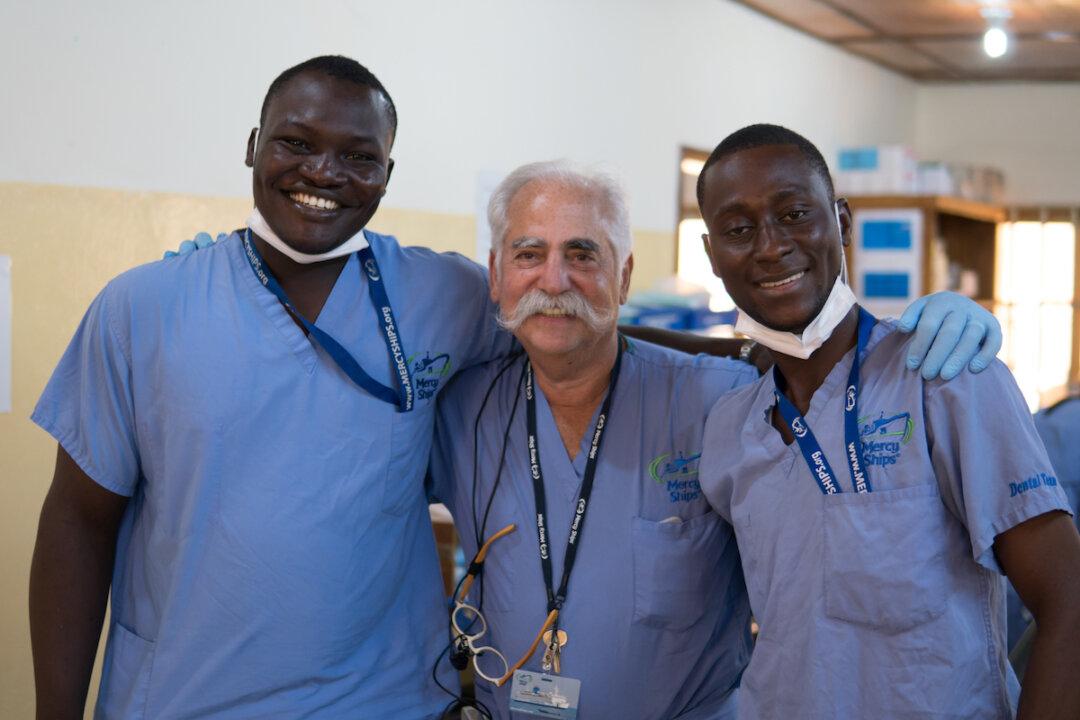NEW YORK–Access to quality healthcare, or any care for that matter, is particularly difficult to find in the developing world. One doctor and 400 other volunteers from 40 countries including doctors, nurses, engineers, and teachers have been traveling around Africa on a floating hospital known as Mercy Ships to provide medical care to those who might have never received it.
Dr. Elliott Siegel is a 70-year-old oral and maxillofacial surgeon who treats everything from wisdom teeth removal to facial, head, and neck infections, and physical trauma such as a broken jaw.






